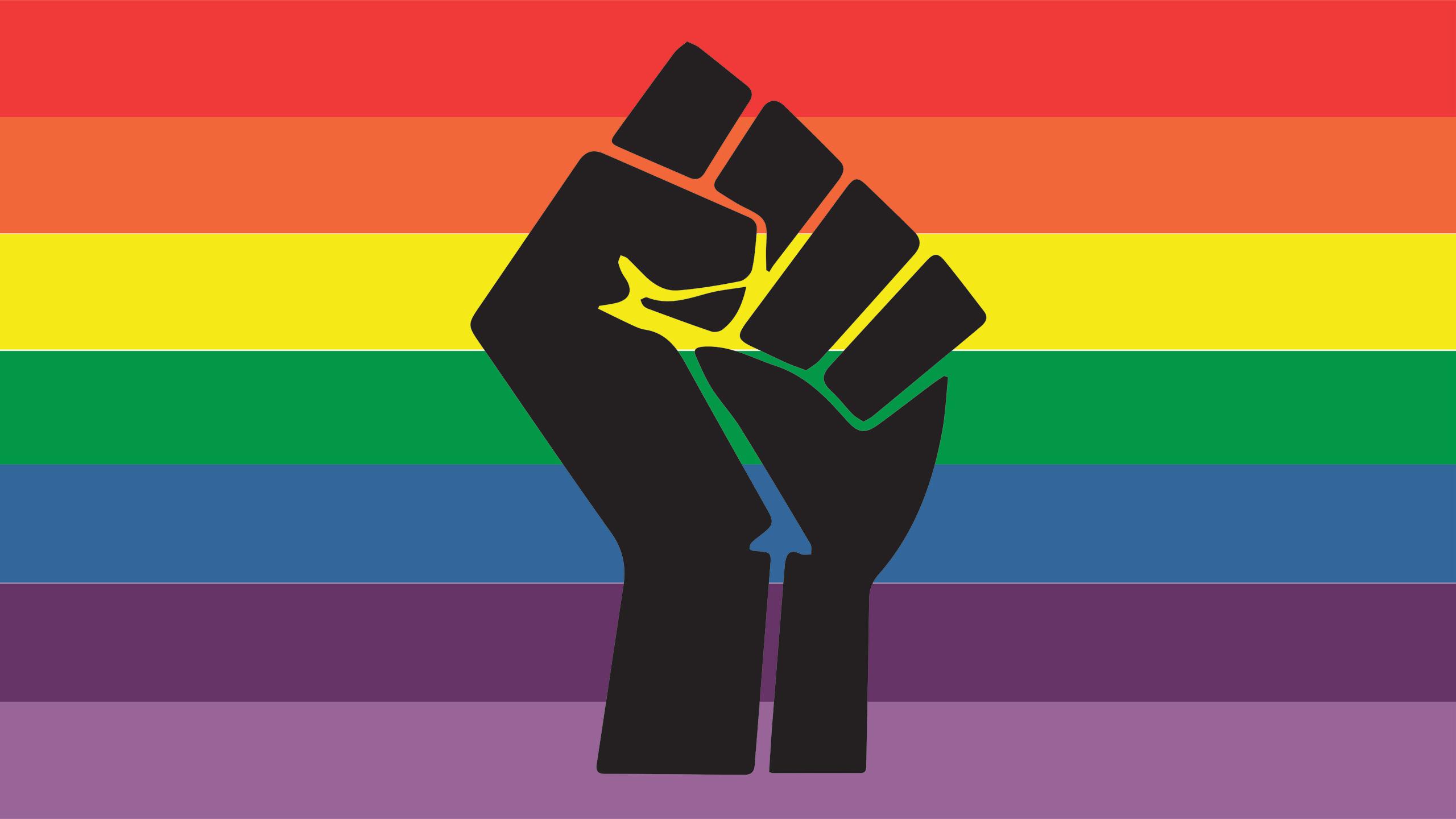“Acknowledging queer people have always been a part of Black history” on the ninth anniversary of Queering Black History Month
Interviews by Dhriti Gupta
Queer narratives can often be pushed to the fringes when commemorating Black, Indigenous and People of Colour’s (BIPOC) history. At Ryerson’s Racialised Students’ Collective (RSC), students are shining light on the intersections of Black and queer identity by “queering” Black history month. The Eyeopener sat down with Mir Asoh, RSC events and campaigns coordinator, and Shaquille Bulhi, former RSC coordinator, to understand what Queering Black History looks like at Ryerson.
What is Queering Black History Month (QBHM)?
Mir: Queering Black History Month, for me, means just acknowledging that queer people have always been a part of Black history. Structures like white supremacy and colonization really water down BIPOC communities. It makes members of the groups feel like you’re not supposed to be queer or you’re not supposed to be trans—like that’s a bad thing.
In North America, Marsha P. Johnson and Sylvia Rivera are well known LGBTQ+ liberation activists and prominent figures of the Stonewall Uprising of 1969. Black trans women and trans women of colour do so much of the heavy work when it comes to activism. As a community, we need to do a better job of supporting, uplifting and standing in true solidarity with trans women.
I know in the continent of Africa, homosexuality is considered to be imported from the west, but that’s not true. It’s part of being African, it’s part of being Black. It’s just getting back to the root of things and realizing that there are all types of Black people, including queer Black people and trans Black people. I think it’s important to recognize that we exist and to celebrate ourselves, because no one else does and we have to.
Shaquille: I think that Queering Black History Month is trying to center experiences that usually haven’t been centered, particularly in Black History Month. But queer Black experiences should be highlighted throughout the whole year.
What needs to be done to support QBHM at Ryerson?
Mir: I think that practical support is more than welcome. I’m talking about monetary funds. I’m talking about wealth distribution. Something that I have to remind myself is that like Audre Lorde said, “the Master’s tools will not dismantle the Master’s house. It may let you beat him at his own game temporarily, but will never enable us to bring about genuine change.” The funds we’re talking about, honorariums for people, are actually not that much money. It’s like $500 per person. People are like, ‘Oh my God, that’s a lot for an honorarium.’ No, it’s not, these people have so much lived experience for the things that they’re about to talk about and the emotional labor they’re going to share.
Every time Black people want something, they’re like, ‘You’re asking for too much.’ We’re fighting for itty bitty things, but people get paid so much more in a month or in a year. We should be able to sit down and explain to people like, this is what we think is best. Here’s why and here’s the financial support that you can give us.
How do you feel about how BHM is typically covered in the media?
Mir: I think that when it’s done, it’s not even done well, especially when like Black people aren’t in charge of whatever is going on. It’s just kind of paying lip service, just to say you did it. I think this is an opportunity–especially for non-Black people–to take what you learn during Black History Month and really branch it off and go forth with that.
Shaquille: When it comes to Black History Month, when we don’t spearhead it, it’s a sad thing. You have institutions, people within the institution and just society at large controlling the narrative for Black folks. I’m thinking about how Ryerson is having a Black graduation and unfortunately, the Black people are not spearheading that event. We have displayed that we can control our own agency and destiny time and time again, outside of just Black History Month. So I think that this is a time within the year that we can control what we would like folks to see in terms of the greatness that we have done.
How does controlling the narrative play into QBHM?
Shaquille: I think that there are a lot of great folks who are not highlighted in Toronto that are queer and excellent, and are doing a lot of on-the-ground work, but are just not being given the accolades because their work is not deemed valuable, especially with the populations that they work for. I think that even just regular-degular queer folks, like my friends and stuff, what we do for each other is up and beyond.
Mir: That’s why we need to allow Black people to have their own agency and voice and control their own narratives. Because if someone else controls the narrative, we don’t get to hear about the things that actual Black queer people are doing. Like, Black queer and trans people, in particular, trans women, are doing such cool, important, amazing things every single day, but you are just less likely to hear about it.










Leave a Reply